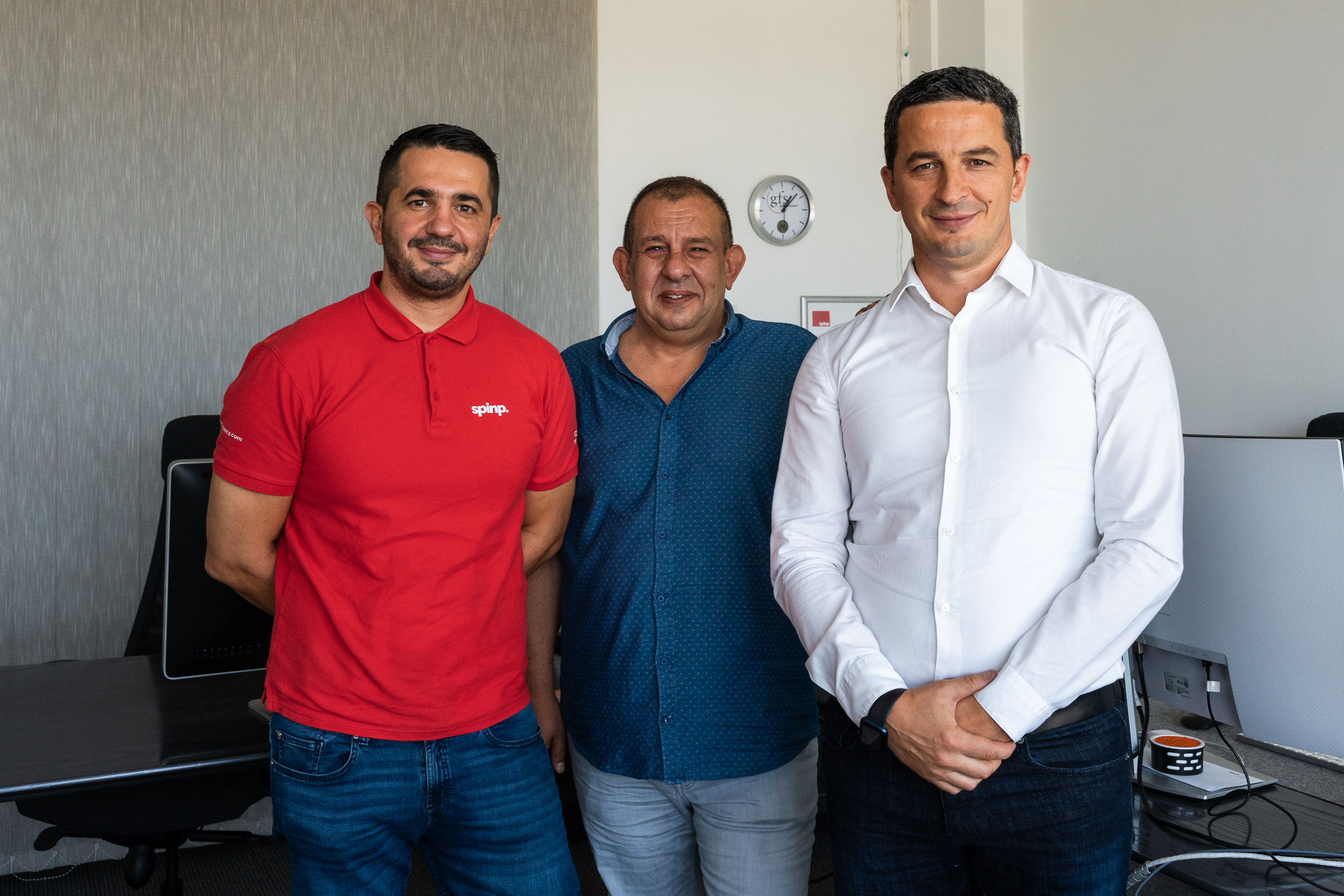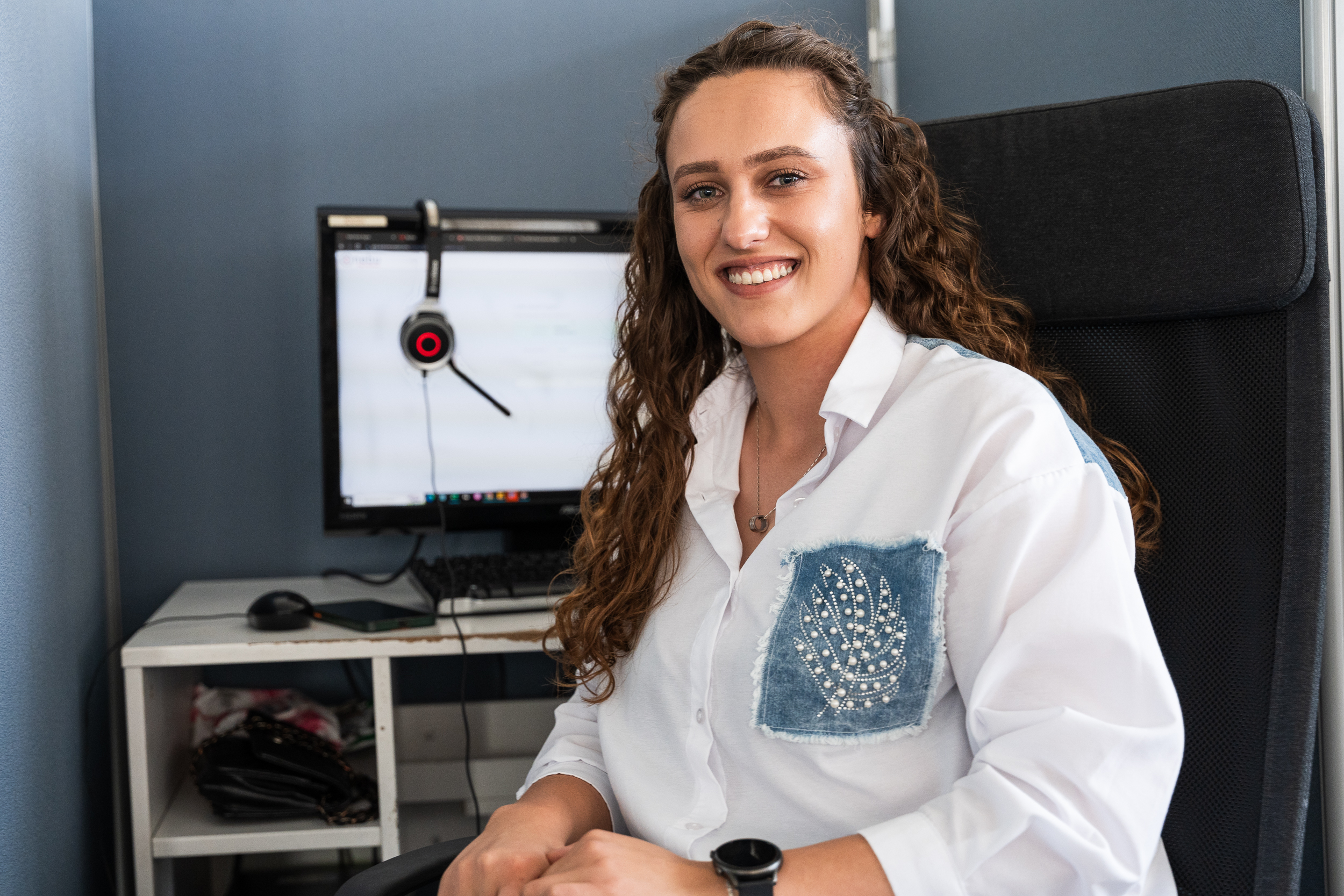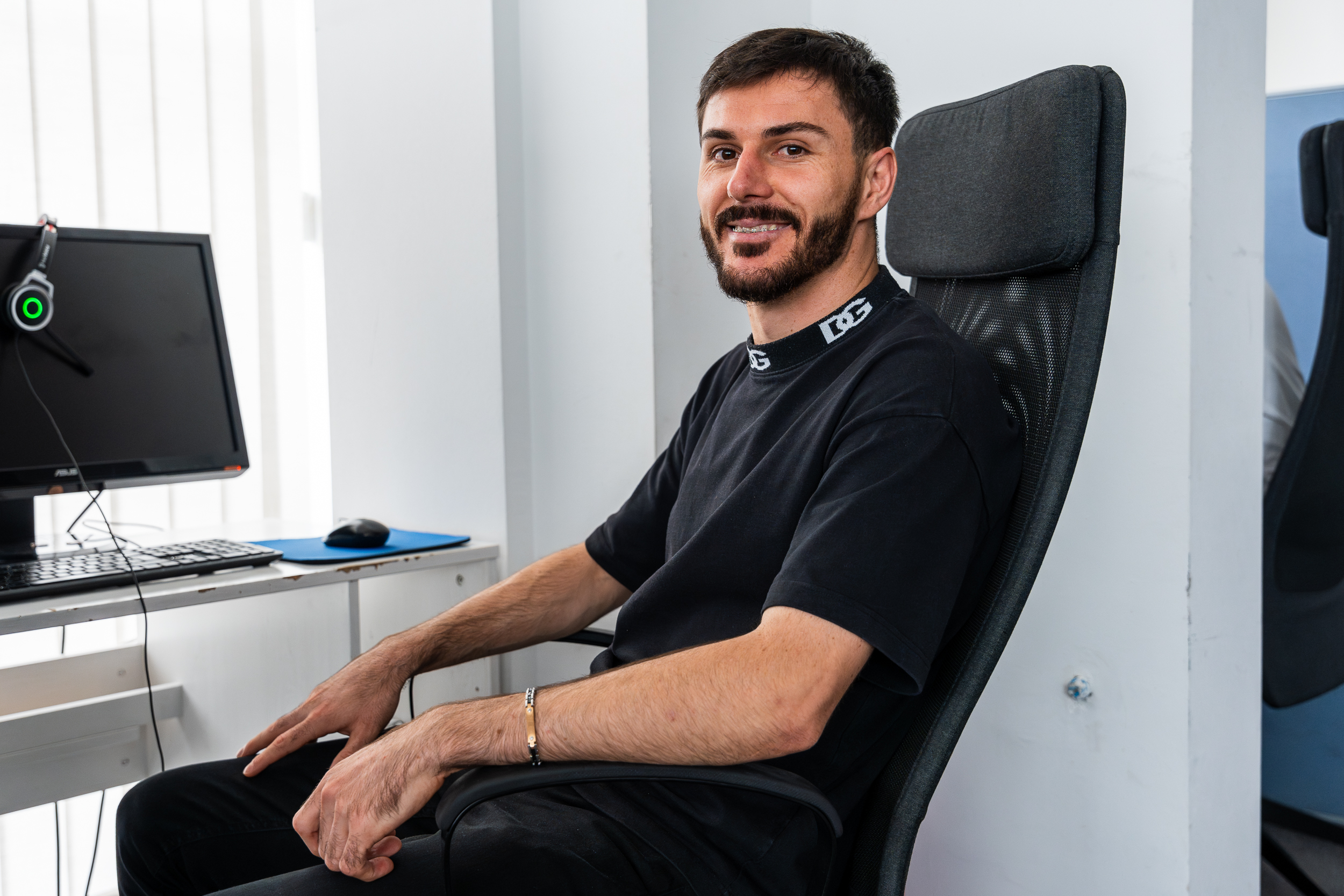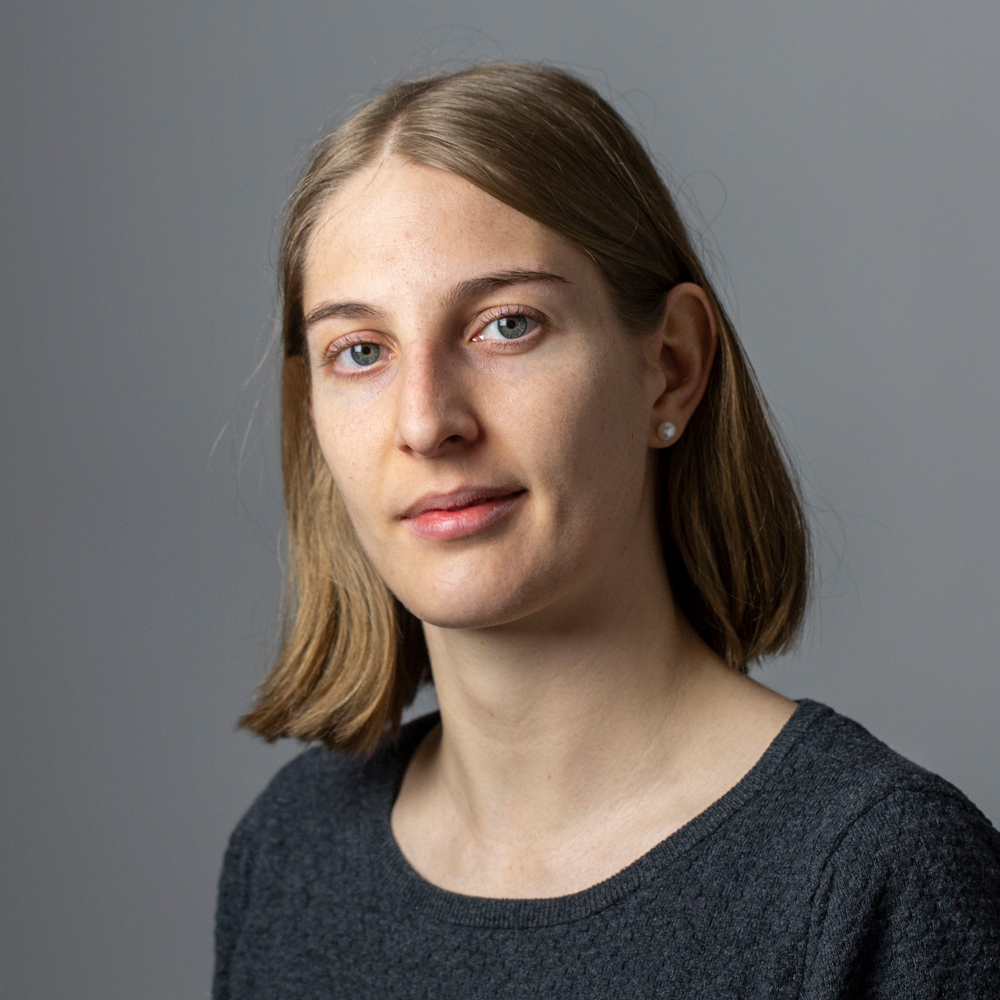
Taking the Swiss pulse – from Kosovo

SWI swissinfo.ch visited a call centre in Pristina that taps the views of people in Switzerland.
Many opinion surveys for the Swiss research institute GFS are carried out by a call centre in Kosovo. To handle phone calls to people in Switzerland, the staff must be at ease with the different Swiss-German dialects. In the process, they learn a lot about Switzerland – a country where many have never set foot.
The working day begins amid a cacophony of voices. “Guten Tag, we’re doing a survey…” “Grüeziwohl, we are conducting…” “… on the opinions of the Swiss…” “Bonjour, may I ask you a few questions?”
It is a polyphonic, multilingual choir of around 15 people wearing headsets and sitting in front of their screens. A private Zurich radio station plays softly in the background.
Kosovo calling: Swiss call centre in Pristina
In many ways it is an ordinary call centre. It conducts representative surveys on the opinions, attitudes and political convictions of the Swiss. Only it is located on the outskirts of the Kosovan capital, Pristina.
Other Swiss companies, including some major mobile phone providers, have also set up call centres in Pristina. Wages and costs are low in Europe’s youngest country and there are many German speakers. However, a call centre that deals with iPhone reception problems does not get as close to Switzerland as this one, which sounds out people’s views on pension schemes, biodiversity and national politics.

More
Kosovo and Switzerland: an intense relationship
Salvatore Petrone serves as the link between the main Swiss shareholders – the opinion research institutes gfs.bern and gfs.zurich, which together make up the GFS survey service – and the partner company, Spinp Agency, in Pristina.
Data security a top priority
From the start of our visit, Petrone stresses how his Italian mentality helped him understand better how things work in Kosovo. A down-to-earth man, he recounts how they drove here from Zurich about seven years ago with a lorry full of office equipment. “We first did a test run and then it grew. Some issues required clarification at the outset.”
Data security, for instance. Everything is stored in Switzerland and nothing locally. The online telephony calls for the GFS survey service are placed from Switzerland. A random generator decides who gets called.
The staff in Pristina see neither the names nor the telephone numbers of those they are calling. They just find out the key demographic information about the interviewees and enter it on the screen.
The Spinp Agency seems well-equipped for the challenges of data protection. The company is run by Armend Aliu, with advisory support from his brother, Ardian. As we talk, Ardian points out of the window at a high-rise building with the Kosovan flag flying over it. This is the headquarters of the national intelligence service, he explains, where they had to sign some non-disclosure papers.

For the Spinp Agency does not just conduct opinion polls. The company works for various ministries and also developed logistics software for the Kosovo army.
“We are in Kosovo, but we offer a work culture just like in Switzerland,” says Ardian Aliu. This includes job security, fair wages and set working hours as well as health insurance – which is not available everywhere in Kosovo.
“The call centre is our most regular line of work,” explains Armend Aliu as he leads us through the rooms where the programmers work. There is a colourful Silicon Valley atmosphere, with wild art on the walls and employees slouching in their chairs. Programming assignments are often either a feast or a famine.
It is different at the call centre. Many things are regulated here, including how to hang the headphones over the screen when leaving the workplace. The call centre employees’ lockers, which together form a Swiss flag, add a touch of colour. Signs announce that the room is being filmed. The core of the work, the actual conversations, are recorded anyway “for quality-control purposes”– as anyone who has ever had dealings with a hotline knows.
‘You cannot imagine how much they love Switzerland’
Elvira Sinani works to the left of the entrance. She is in her early twenties, is studying German and wants to work as a teacher in Kosovo later on. “I now understand how the people I call feel,” she says at the beginning of the interview with us.
Day after day, she interviews the Swiss population. She has never been interviewed herself. “But if I got a call, I would be happy to take part because I know just how much call centre agents put into their work,” Sinani says. “We do our utmost to ensure that people can express their opinions.”
Her knowledge of standard German is flawless, but for the GFS surveys she first had to learn to understand Swiss German, like everyone else at the call centre. The thick dialect spoken in canton Valais is the biggest hurdle.
Sinani speaks positively about the phone calls, although sometimes people react angrily. She understands why. “We reach them in all kinds of situations, at work or when they just want to have a quiet dinner with their family. You have to realise that, and we do.”

The Swiss really love their country, she says. “You have no idea how much they love Switzerland. If something goes wrong, politically for instance, they do everything they can to change it. And they express their opinions very clearly, which can be good for Switzerland.”
In many interviews Sinani notes that the Swiss feel responsible for political developments in the country. There is a sense of responsibility for making the right decisions. “Not just for themselves, but also for future generations.” She sounds almost admiring. “The Swiss believe in the system.”
In Kosovo the perception of politics is different. “If I went into politics, I would try to bring about change, but the problem would probably be trust. Because we have had bad experiences with politics, there is a lack of trust.”
‘We just want the opinion of people in Switzerland’
Halil Beqiraj works as a deputy supervisor at the call centre and has a degree in economics. “If an interviewee asks to speak to the manager, then I’m called in,” he explains. “I also have a specific role in conducting the training sessions.”
What the call centre staff ask and when is clearly laid down for each study. The questions and the selection options appear on the screen. However, the staff are informed not only about the structure of the study, but also the topics. Beqiraj appreciates this very much.
“I learn a lot through my work,” he says. “Topics such as biodiversity and light pollution are very interesting.” In Kosovo, he explains, these issues are not very present. “I read up on them after work.” Biodiversity affects Kosovo just as much as Switzerland, he continues, “but it’s never really dealt with here”.

Call centre jobs are considered rather precarious in Switzerland, but in Kosovo they are well paid compared to the general wage level. And working conditions at the Swiss call centre are even better, says Beqiraj, not only materially, but also in terms of human interaction.
This is also because, as opinion researchers, they are not trying to sell anything. “We just want the views of people in Switzerland. We are neutral ourselves.” This makes the phone calls a lot more pleasant, he says.
Edited by David Eugster. Translated from German by Julia Bassam.

In compliance with the JTI standards
More: SWI swissinfo.ch certified by the Journalism Trust Initiative





































You can find an overview of ongoing debates with our journalists here . Please join us!
If you want to start a conversation about a topic raised in this article or want to report factual errors, email us at english@swissinfo.ch.